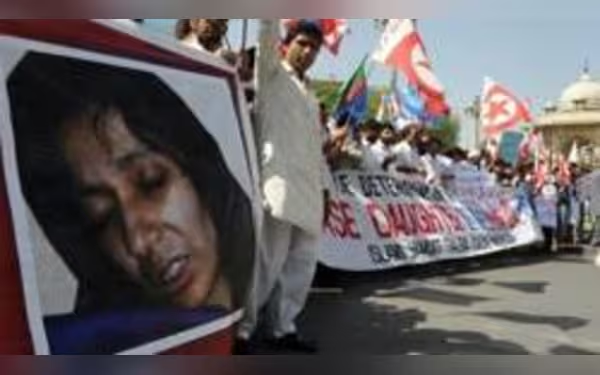Saturday, November 16, 2024 11:17 PM
AGP Updates IHC on Dr. Aafia Siddiqui's Release Efforts
- AGP briefs IHC on Dr. Aafia's release efforts.
- Four-member delegation to engage U.S. officials.
- Next hearing deferred until end of November.
 Image Credits: nation_pk
Image Credits: nation_pkAGP briefs IHC on efforts to secure Dr. Aafia Siddiqui's release from U.S. jail, with a delegation set to engage U.S. officials.
Dr. Aafia Siddiqui, a Pakistani neuroscientist, has been a subject of significant concern and discussion since her imprisonment in the United States. Her case has drawn attention not only for its legal implications but also for the emotional toll it has taken on her family and supporters. Recently, the Attorney General for Pakistan (AGP) provided an update on the government's ongoing efforts to secure her release during a session at the Islamabad High Court (IHC).
On Friday, the AGP, Mansoor Usman Awan, addressed a single bench of the IHC, which was presided over by Justice Sardar Ejaz Ishaq Khan. This session was particularly focused on a constitutional petition filed by Dr. Fowzia Siddiqui, Aafia's sister, who is advocating for her release. The AGP detailed the government's plans to send a four-member delegation to the United States following the upcoming elections, aiming to engage with U.S. officials regarding Dr. Aafia's situation.
The proposed delegation is set to include notable figures such as former federal minister Talha Mehmood, Dr. Fowzia Siddiqui herself, former Minister Anusha Rehman, and a medical professional. This group is expected to initiate discussions with U.S. authorities within the next two weeks, focusing on potential avenues for Dr. Aafia's repatriation to Pakistan.
During the hearing, Justice Sardar Ijaz Ishaq Khan took the opportunity to verify the visa status of the doctor who will accompany the delegation. Dr. Fowzia confirmed that the necessary visa has been secured, which is a positive step forward in the diplomatic efforts being undertaken.
Attorney General Awan expressed a sense of optimism regarding the upcoming discussions, indicating that he believes a constructive dialogue could emerge from the delegation's visit. This sentiment reflects a hopeful outlook on what has been a long and arduous journey for Dr. Aafia's family and supporters.
As the case continues to unfold, the next hearing has been deferred until the end of November. This delay will allow the court to review any further developments related to the diplomatic efforts aimed at securing Dr. Aafia's release. The situation remains fluid, and many are watching closely to see how these efforts will progress.
The plight of Dr. Aafia Siddiqui serves as a poignant reminder of the complexities surrounding international law and human rights. As the Pakistani government takes steps to advocate for her release, it highlights the importance of diplomatic engagement and the role of legal frameworks in addressing such sensitive issues. The outcome of these efforts could not only impact Dr. Aafia's future but also resonate with broader discussions about justice and human rights on a global scale.













